Author: Academic Minute
-
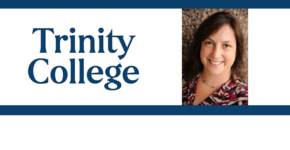
Sarah Raskin, Trinity College – Brain Injuries Aren’t Just Happening in Sports
It’s not just athletes who have to worry about brain injuries. Sarah Raskin, Charles A. Dana professor of psychology and neuroscience at Trinity College, details other areas of life that are sadly involved in these afflictions as well. Sarah A. Raskin, Ph.D. is a Board Certified Clinical Neuropsychologist and the Charles A. Dana Professor of…
-
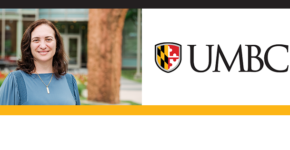
Loren Henderson, University of Maryland Baltimore County – Centering The Voices of Black Farmers
The COVID-19 pandemic was difficult to navigate for farmers of color. Loren Henderson, associate professor of public policy and incoming director of the school of public policy at the University of Maryland Baltimore County, centers their voices. Henderson’s research interests include diversity issues, stratification and inequality, health disparities, race, class, gender, and sexuality. She is…
-
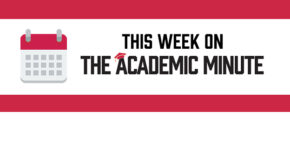
This Week on The Academic Minute (2024.07.22)
This Week on The Academic Minute 2024.07.22 Monday Loren Henderson, associate professor of public policy and incoming director of the school of public policy at the University of Maryland Baltimore County, centers the voices of black farmers. Tuesday Sarah Raskin, Charles A. Dana professor of psychology and neuroscience at Trinity College, details other…
-

The Academic Minute for 2024.07.15-2024.07.19
The Academic Minute from 7.15 – 7.19 Monday Claire Cahen – Occidental College Selling Student Futures Claire Cahen (she/ her/ hers) is an urbanist, researcher and educator living and working in Los Angeles. She researches and writes about municipal austerity and public sector union renewal—how workers are responding to decades of cuts to public services,…
-
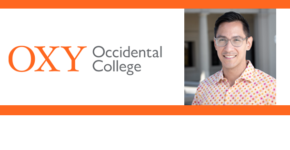
Raul Navarro, Occidental College – Organic Chemistry as Molecular Architecture
On Occidental College Week: Nature can give us the compounds to treat afflictions, but are we taking advantage? Raul Navarro, assistant professor of chemistry, looks at one avenue to do so. Raul Navarro was born and raised in Los Angeles, CA. He obtained his bachelor’s degree in chemistry at Yale University, then traveled back to California…
-
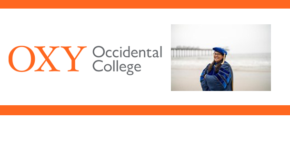
Syeda ShahBono Ijaz, Occidental College – How Foreign Aid Changes Political Behavior
On Occidental College Week: Foreign aid can change political behavior in the country receiving it. Syeda ShahBano Ijaz, assistant professor of global political economy, diplomacy & world affairs, details how. Syeda ShahBano Ijaz is a scholar of the political economy of development with a regional focus on South Asia. Her research, teaching, and public scholarship…
-
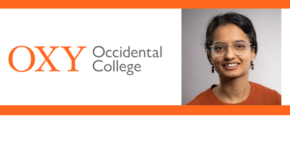
Natasha Sekhon, Occidental College – Unlocking Ancient Water Signals Locked in the Geologic Record
On Occidental College Week: Hints to our climatic future could be hidden underground. Natasha Sekhon, assistant professor in the department of geology, digs in for a look. Dr. Natasha Sekhon has her training as a low-temperature geochemist and paleoclimatologist. She uses the geochemical signals preserved in speleothems (secondary cave deposits) and monitors modern cave systems…
-
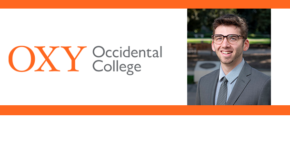
Zachary Silver, Occidental College – Understanding Canine Perception of Human Behaviors
On Occidental College Week: We see our dogs as good pets, but how do they see us? Zachary Silver, assistant professor of psychology, looks for an answer. Assistant Professor of Psychology Zachary Silver has a B.A. in psychology and music from Illinois Wesleyan and a pair of master’s degrees and a Ph.D. in psychology from…
-
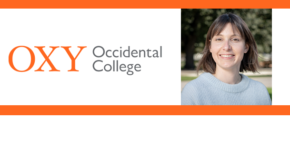
Claire Cahen, Occidental College – Selling Student Futures
On Occidental College Week: Which schools are taking on most of the burden of a school district’s debt? Claire Cahen, assistant professor of urban and environmental policy, determines it might not be spread evenly. Claire Cahen (she/ her/ hers) is an urbanist, researcher and educator living and working in Los Angeles. She researches and writes…
-

This Week on The Academic Minute (2024.07.15)
This Week on The Academic Minute 2024.07.15 Monday Claire Cahen, assistant professor of urban and environmental policy, says which schools are taking on most of the burden of a school district’s debt might not be spread evenly. Tuesday Zachary Silver, assistant professor of psychology, looks into how our dogs see us. Wednesday…